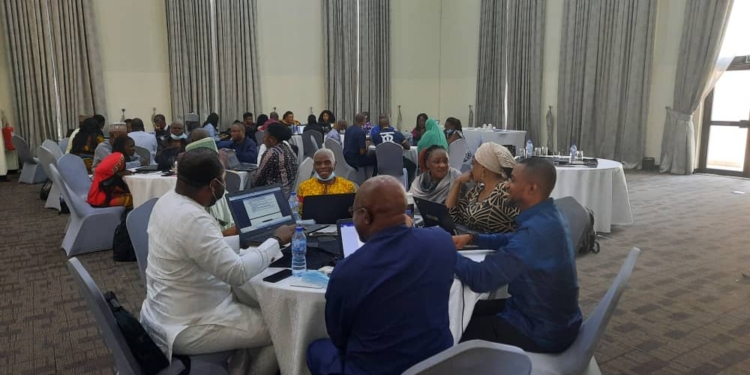Civil Society Organizations have advocated for the strengthening of the legal framework on social protection in Nigeria to ensure sustainability of the policy with the aim of reducing poverty in the country.
The various CSO groups, under the platform of National Social Protection CSO Partners Forum on SPP Implementation, made the submission at the review of the National Social Protection Policy which is supported by Child Development Grant Programme (CDGP) of Save the Children, International.
The CSOs noted that strengthening the legal framework of the policy would enforce compliance of the provisions of the policy and also allow budgetary appropriation.
Speaking with BONews Service, Dr. Adebukola Adebayo, member of the Lagos State Civil Society Participation for Development, LACSOP explained that the policy is not binding and an administration who is not keen about social protection might disregard it.
Dr. Adebayo also stressed that, “there is need to make the policy more sustainable, the successes that have been achieved since inception are quite commendable and they shouldn’t be eroded.
“The social investment programmes, school feeding programmes, trader money amongst others have achieved a lot of success and the best way to sustain this initiative after this administration is to strengthen the legal framework by converting the policy to a law,” he added.
Speaking on the need to make the NSPP disability-sensitive, Irene Patrick-Ogbogu, Executive Director, Disability Rights Advocacy Center explained that there is need for the policy to deliberately focus on Persons with disabilities, so they are not left behind.
Patrick-Ogbogu explained that, “Social protection programmes are meant to target those who are poor, vulnerable and disadvantaged one way or the other and all of these are indices that PWDs fit into.
“PWDs find themselves disadvantaged because they are among the poorest of the poor, they lack access to social services and opportunities and these put them at a serious disadvantaged.
“The Social Protection Programmes will improve their standard of living, provide better income and more opportunities which will at the end of the day improve their socio-economic status.
“Thus, we need to deliberately make the policy inclusive and ensure that PWDs are not left behind,” she added.
Leo Atakpu, Deputy Executive Director, Africa Network for Environment and Economic Justice, ANEEJ explained that the CSO groups are vital in monitoring the implementation of the policy, developing periodic reports to engage the government to ensure full implementation of the policy.
Atakpu buttressed that the existing policy lacks monitoring and evaluation mechanisms which makes it difficult to assess the impact of the policy and level of implementation.
He said, “the policy is being implemented but there is need for improvement
“There is no costed work plan and M & E framework. All these need to be put in place in the revised policy,” he added.
Atakpu also mentioned the need to generate more resources to be able to fund the provisions of the policy. He said, “the government needs to explore options to generate revenue for the implementation of the policy as much is needed to be done,” he added.
Speaking on the importance of the policy review, Saheed Mustafa, Senior Policy and Advocacy Advisor, Save the Children explained that the NSPP is due for review because a legislative framework is required for the institutionalization of the programmes
Mustafa added that, “the implementation of the current policy is at the 3rd year and it’s therefore time to begin processes of the review.”
He also explained that the COVID-19 Pandemic experience and the need for shock responsive Social Protection is another reason for the review of the NSPP adding that, “there is need for standard Monitoring and Evaluation framework to track changes.”

